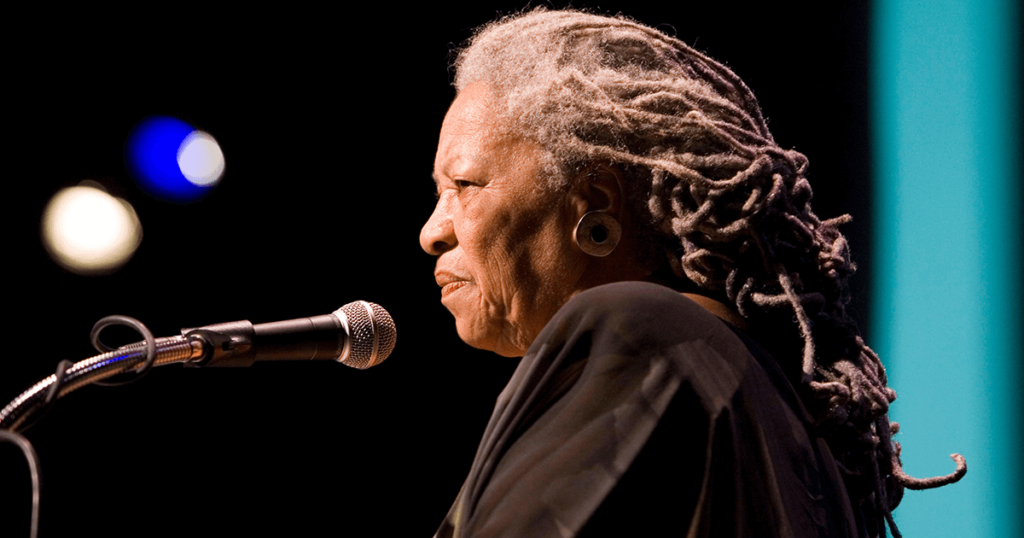
In her later decades, writer Toni Morrison became a venerated cultural icon. Justly honored at the Obama White House. Cherished on television by her adoring friend Oprah Winfrey. Escorted down a marble staircase by the King of Sweden in 1993, when she became the first African-American woman to win the Nobel Prize for Literature. With her large wise eyes and magnificent silver dreadlocks, she seemed more empress than mere mortal.
Her death this week at 88 triggered a genuine outpouring of admiration and grief in print, on TV and, yes, on Twitter. Famous writers and unknown readers all posted about her impact on their lives.
To truly honor Morrison, however, one should return to her most important role—as a storyteller. Her first novel, The Bluest Eye, was published in 1970, when Richard Nixon was in the White House and Morrison was an unknown single mother of two sons supporting herself as a book editor. Read today, the tragic tale of Pecola Breedlove remains as startling, original, and imperishable as it did back then. Set in Morrison’s own hometown of Lorain, Ohio, The Bluest Eye tells the story of an 11-year-old black girl who searches for love in a hostile society that destroys her with its message that she is ugly because of her race, her family, and her dark skin.
Forty-nine years ago, this novel was revelatory and revolutionary, stripping the scales from society’s eyes about the impact of racism on African Americans, particularly children. We would never look at Dick and Jane or Shirley Temple in quite the same way again.
Throughout her career, Morrison continued to explore and expand on its themes. No one wrote more perceptively about the complicated bonds—love, hate, resentment—that exist between sisters, daughters, mothers, sons, brothers, lovers. Most of all, Morrison probed the effect of slavery and its legacy of racism on black people. In brilliant novels like Sula and Song of Solomon, Morrison was a pathfinder.
She also celebrated the resilience of spirit and community that African Americans forged in resisting racial hostility. In interviews, Morrison was clear: she wrote about black people for black readers. To allow the concept of “the white gaze” to influence her writing would limit her creativity and truthfulness.
Her subject may have been specific, but her singular voice—intimate, poetic, earthy, haunting—made her universally read and admired. Morrison was also that rarest of authors. Blessed with a beautiful speaking voice, she narrated most of her own audiobooks.
In Beloved—considered her masterpiece—Morrison wove a tapestry that mixed the supernatural with the horrifying. Morrison based the novel, a haunting ghost story, on a real-life African-American woman named Margaret Garner, who killed her baby rather than see the child returned to slavery.
When Morrison accepted the Nobel Prize, she noted, “We die—that may be the meaning of life. But we do language. That may be the measure of our lives.”
And in her case, it was a marvelous measure indeed.

